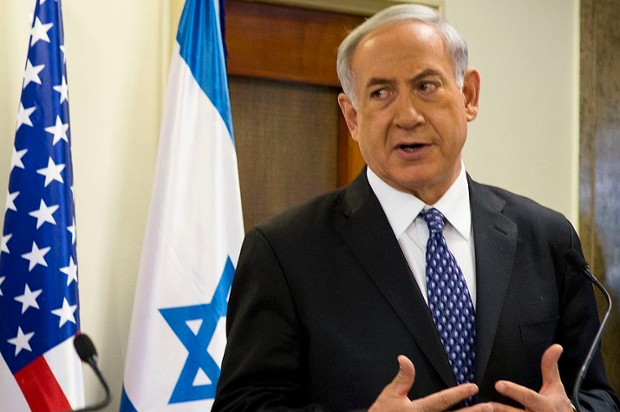What does a fifth Netanyahu term mean?
 Photo/Erin A. Kirk-Cuomo
Photo/Erin A. Kirk-CuomoIsrael Prime Minister Benjamin Netanyahu
Israeli Prime Minister Benjamin Netanyahu secured his fifth consecutive term in power in the country’s elections on April 9.
Though the election results extend Netanyahu’s unprecedented run as Israel’s head of state, the political battle wasn’t without road bumps. Throughout the election, Netanyahu was dogged by indictments, challenges in building support on the Israeli right and ongoing questions about the future of Israel-Palestine relations.
Professor Yehudah Mirsky of near eastern and Judaic studies and the Schusterman Center for Israel Studies spoke with BrandeisNOW to discuss Netanyahu’s victory.
Is Netanyahu a strong leader?
Yes, he’s strong, but he’s always vulnerable. And because he’s vulnerable, he fights dirty. He’s a man who is utterly confident of winning and one who is willing to break with allies to hold on to power. Remember, he denounced three of his former chiefs of staff as bug-eyed left-wingers and engages in demagogic populism. There are also allegations that he engaged in voter suppression in this election in primarily Arab municipalities.
He fights dirty because he feels threatened, which is a feeling you can justify since he is in legal peril. And he’s really not loved, even in his own party. He does a remarkable job of surviving.
This will be Netanyahu’s fifth term. Is there anything particularly different about this one?
It’s interesting – in the past, there have been people to the left and right of Netanyahu on the political spectrum. Now he is the right wing and owns the Israeli right.
There are a number of surprising paradoxes with Netanyahu, though. For instance, the really hard right doesn’t trust him and sees him as a slippery, evasive man who is interested in survival above all else. Generally, he is not as maximalist as they’d like him to be. But in this election, as he has increasingly done in recent cycles, he articulated extreme positions to ensure that he wouldn’t be out-flanked by another conservative politician. Presumably he thinks he can work his way back to a more sustainable status quo once he’s put together a working coalition.
The threat of indictments has been floating around Netanyahu recently. What does this mean for him and the office of the Prime Minister?
Assuming Netanyahu does get indicted, it’s important to understand that there is genuine magnitude to some of these charges. For instance, there’s increasing argument that Israel, a world leader in hi-tech, is lagging in hi-speed internet development because Netanyahu slow-walked regulations for the benefit of internet and media tycoons who also own news organizations. In exchange, he’d receive more favorable media coverage.
This is a profound moment – a man who’s just won a remarkable victory may soon be indicted. It’s expected that if he can form a government he will immediately try to pass legislation that gives sitting Prime Ministers immunity from trial. Israel has in recent years been willing to send a former Prime Minister and President to jail for respectively, corruption and sexual abuse. These likely moves by Netanyahu would be a real challenge to the rule of law.
If he does survive possible indictments while in office, what does Netanyahu’s new government look like?
Netanyahu is still very pro free market and social welfare doesn’t interest him unless it helps him politically. Israel is also still in good relations with a range of countries – from the U.S. to the gulf countries, a now-stable Egypt, India, central and eastern Europe, and Russia. He has also tried building ties with African nations.
But in general, he’s going to try to keep everything moving along and try to endlessly keep the Palestine question deferred.
He likely won’t initiate any large moves or grand bargains.
You mentioned the U.S. – does he have any cause for concern from President Trump?
If President Trump comes up with some kind of peace plan, it will certainly blow up the Palestine issue for Netanyahu in the sense that it will actually be on the table and destabilize an unhappy but day-to-day status quo. A real concern is that an ill thought-out Trump plan would inadvertently derail Israeli security cooperation with the Palestinian Authority and the warming trends between Israel and the Arab Gulf states.
Historically, Netanyahu rhetorically advocates for very maximalist positions related to Palestine and annexation and then dances around and back from them. We’ll see if people hold his feet to the fire this time, although he will not want to be boxed in. The question is, will Trump box him in?
A peace plan means he’ll have to make decisions. It’s possible that whatever plan comes up, his coalition partners will want him to aggressively and quickly annex territories.
Categories: General, International Affairs





